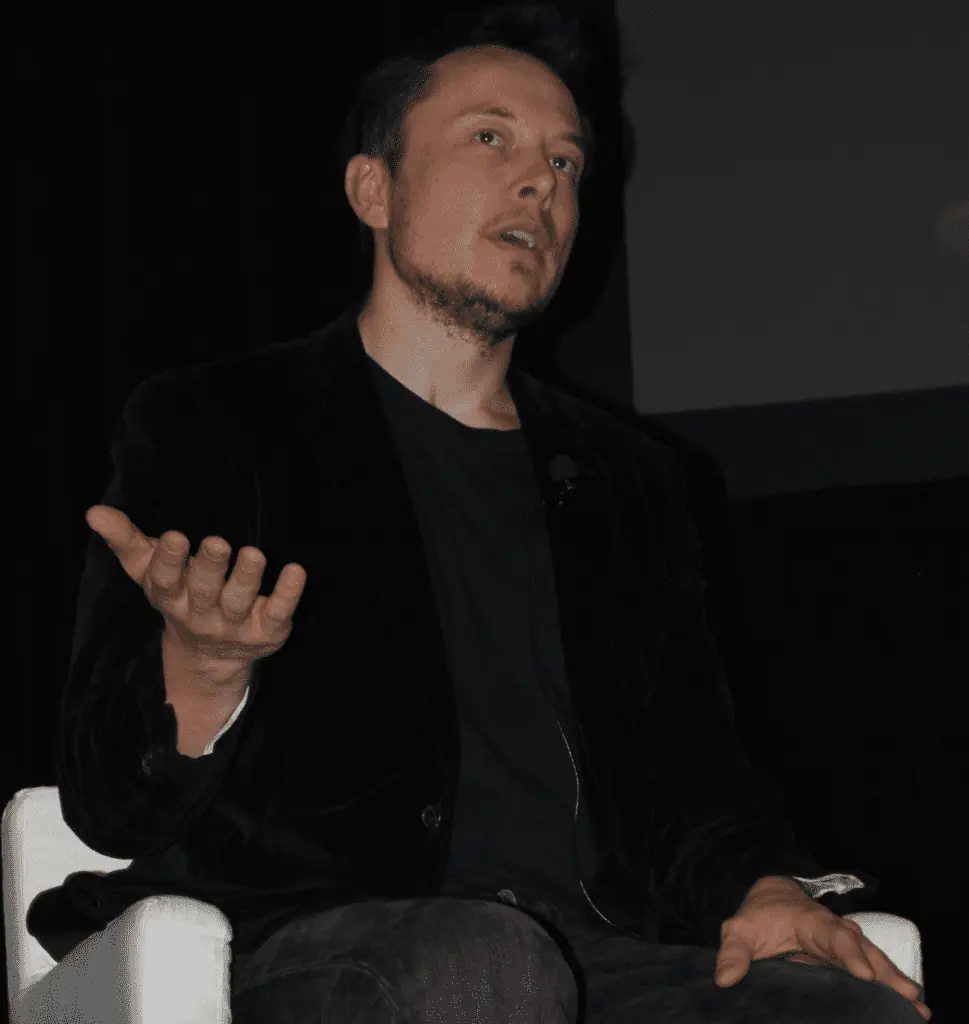
Dear Elon Musk:
We were ready to anoint you the Leonardo Da Vinci of our age.
You built at least two new industries, you were our climate champion, you were going to take us to Mars.
You were the Zen monk of engineer entrepreneurs; a man with the Midas touch, who did not care about money or its accoutrements. A veritable extra-terrestrial who lived in splendid isolation, beyond earshot of baying skeptics.
And then you blew it. It all came crashing down when you went and bought Twitter. Far from becoming the perfect digital town square you envisaged, Twitter is already devolving into the hellscape you feared. Worse, you’re leading the charge to the bottom.
How could it go so wrong?
It’s tempting to blame narcissism and hubris for your plight, but too easy. Perhaps your fall was inevitable for a different reason. You may have created your own world, but, ultimately, you couldn’t elude the reach of physics. As you well know, the physical world has a “tendency toward disorder,” according to the second law of thermodynamics. The concept of “entropy” predicts that isolated systems naturally become less and less organized with the passage of time, a gradual decline into a state of chaos. Going in several directions, juggling seemingly intractable challenges and finally, faced with a crippling debt, you snapped. Maybe it was as simple as that. Physics prevailed.

There were signs. We’d noticed that you brooked not even the slightest criticism, hitting back by displaying a child’s capriciousness and cruelty. (There was that time that you called the rescuer of trapped Thai schoolboys a “pedo guy” because he rejected your idea of building a mini sub). But we put up with it. Perhaps a touch of crazy was to be expected. Brilliance borders on madness, we said, just look at Steve Jobs. A little narcissism may be a necessary condition for tech godliness, we reasoned.
Ironic, though, since physics is the bedrock on which you built your success. Like Aristotle you put your trust in “first principles thinking,” a methodology that dates to classical antiquity, later developed by the likes of Euclid, Descartes and Kant.
First principles thinking is a guide to systematically coming up with new solutions by reverse-engineering challenges. It critically questions the assumptions of the challenge and breaks it down into basic components – the basic laws of physics in the extreme — after which it reassembles the components from the ground up to come up with new ideas. In stark contrast to first principles thinking, analogical thinking seeks to duplicate solutions that have worked in similar contexts to a given challenge rather than develop unique and original ideas.
In your own words, “First principles is a physics way of looking at the world. What that really means is that you boil things down to the most fundamental truths and then reason up from there…that takes a lot more mental energy than reasoning by analogy.”
But first principles thinking breaks down in the face of complexity. The behavior of sufficiently complex systems is, for all practical purposes, unpredictable from its basic components as the number of possible outcomes grows exponentially. That’s why you’ve been unable to deliver on the fully autonomous car –- the most complex engineering project ever undertaken — despite promising us for the last ten years that it was only a year away.
You may have created your own world, but, ultimately, you couldn’t elude the reach of physics. Maybe it was as simple as that. Physics prevailed.
Social media is infinitely more complex – and thus spawns more unpredictable outcomes– than any autonomous vehicle because it models human behavior, amplifying its basest aspects. The workings of a platform that is designed to allow human consciousness to manifest in its prolific diversity defy predictability based on a single logical system such as first principles.
In the end, sadly, you may have misunderstood physics.
It is true that physics is the science of matter in motion. Since every system, biological, economic, psychological or astronomical is also, ultimately, matter in motion, you could argue that physics is the foundational science. And, thus, any system – ultimately the phenomenological world in its entirety — based on such a foundation is predictable in its behavior.
If so, the only thing standing in the way of realizing full scale automated driving is creating a computer that is supremely powerful yet efficient enough – small and cheap enough — to be built into a car. Alas, that’s a pipe dream; no such device is likely to be around for several decades, if ever.
But what we do know is that physics cannot explain human consciousness and its consequence, human behavior. No discernable, biological, neural process explains how ineffable consciousness arises out of “matter.”
Physics, therefore, is not as foundational as you believe; it does not reflect all aspects of reality. First-principles thinking, based on physics, plays no role in predicting or moderating entropic human behavior.
That is why Twitter is doomed. You must know it by now, given your increasingly desperate attempts to save it. We see you in meltdown mode. It’s not a pretty sight.
You were thoughtful before this madness gripped you. Give this some thought, then, before it’s too late: First principles is a philosophy better suited to building insentient objects like cars and rockets, not for fixing society.
Heed the voice of the people. Separate yourself from Twitter.
Sincerely yours,

Girish Mhatre is the former editor-in-chief and publisher of EE Times. The views expressed in this article are those of the author alone and do not necessarily represent the views of the Ojo-Yoshida Report.
Copyright permission/reprint service of a full Ojo-Yoshida Report story is available for promotional use on your website, marketing materials and social media promotions. Please send us an email at talktous@ojoyoshidareport.com for details.
